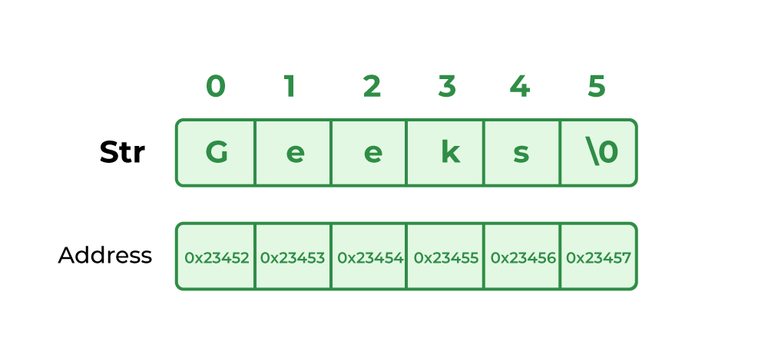What Is Unalterable Strings and Just How It Functions
In the world of programs, understanding the idea of unalterable strings is critical for producing robust and safe and secure applications. Unalterable strings refer to strings that can not be altered after they are developed, making sure data honesty and predictability within the code.
The Essentials of Unalterable Strings
Immutable strings, as a fundamental idea in shows, are personality series that can not be changed when they are created. This suggests that when a string is designated a value, that value can not be modified. In languages like Python and Java, strings are immutable objects, resulting in various effects in terms of memory monitoring and data integrity.
Among the crucial advantages of unalterable strings is that they supply a feeling of protection in data control. Considering that the web content of an immutable string can not be changed, it ensures that the initial information stays undamaged, lowering the danger of unexpected modifications during program execution (Why are strings immutable in Java?). This home also streamlines debugging processes, as designers can trust that as soon as a string is specified, its value will not be accidentally changed
Furthermore, immutable strings help with efficient memory usage. When a new string is developed based upon an existing one, instead than changing the original string, the brand-new worth is saved independently. This approach improves performance by reducing memory fragmentation and simplifying memory allotment procedures. In general, comprehending the basics of unalterable strings is crucial for mastering programming principles and enhancing code efficiency.
Benefits of Immutable Strings
Structure upon the protection and efficiency benefits of unalterable strings, their advantages expand to enhancing code dependability and streamlining concurrent shows jobs. By being immutable, strings can not be changed after development, which eliminates the threat of unexpected adjustments in the data they keep. This intrinsic immutability makes sure that as soon as a string is developed, its value continues to be constant throughout the program's implementation, decreasing the possibilities of pests brought on by unanticipated alterations.
Furthermore, unalterable strings add to code reliability by making it much easier to reason concerning the state of a program. Since strings can not be altered, designers can rely on that a string will constantly hold the same value, simplifying debugging and upkeep efforts. This predictability brings about a lot more reliable and steady codebases.

Execution in Shows Languages
Within various programs languages, the unification of unalterable strings is an essential facet that impacts how information is handled and controlled within code structures. The application of immutable strings varies throughout various programming languages, with each language offering its own mechanisms to support this principle.

On the other hand, languages like C and C++ do not have integrated assistance for unalterable strings. Programmers in these languages need go to this web-site to by hand implement immutability by imposing policies within their code to stop straight adjustments to string things.
Best Practices for Functioning With Unalterable Strings
When handling unalterable strings in programs languages like Java and Python, sticking to best methods makes sure protected and efficient information adjustment. One of the crucial best methods is to utilize StringBuilder or StringBuffer rather of directly adjusting strings, particularly when handling substantial concatenation operations. These courses supply mutable alternatives for string control, helping to prevent unneeded memory allocations and improving performance.
One more finest method is to make use of string interpolation or format operates given by the language instead of manual concatenation. This not just boosts readability yet additionally help in avoiding usual pitfalls such as unintentional string modifications. In addition, when dealing with sensitive data such as passwords or API tricks, it is vital to avoid storing them as ordinary text in immutable strings. Using safe storage mechanisms like char selections or specialized collections for managing sensitive info assists reduce safety and security risks related to unalterable strings.
Real-world Applications and Instances
Discovering practical implementations of unalterable strings in different sectors reveals their substantial influence on data stability and system reliability. In the medical care sector, immutable strings play an important duty in ensuring the security and discretion of patient data. By stopping unapproved adjustments to sensitive details such as clinical documents and prescriptions, unalterable strings help keep conformity with stringent privacy regulations like HIPAA.
Banks additionally take advantage of the immutable nature of strings to enhance the protection of consumer data and deal documents. Immutable strings aid prevent fraudulence and unauthorized modifications to monetary information, offering a robust protection versus cyber dangers and making certain the trust fund and confidence of customers.

Final Thought
Finest practices for functioning with unalterable strings consist of avoiding straight adjustments and using methods that return brand-new string objects. Real-world applications of unalterable strings include information file encryption, caching, and string adjustment jobs.
Immutable strings refer to strings that can not be changed after they are created, guaranteeing information integrity and this page predictability within the code. When a brand-new string is developed based on an existing one, rather than customizing the original string, the brand-new worth is stored independently.In languages like Java and Python, strings are immutable by default, suggesting that as soon as a string things is produced, its worth can not be altered - Why are strings immutable in Java?. Finest practices for functioning with immutable strings include preventing straight alterations and using approaches that return brand-new string things. Real-world applications of unalterable strings include data encryption, caching, and string control jobs